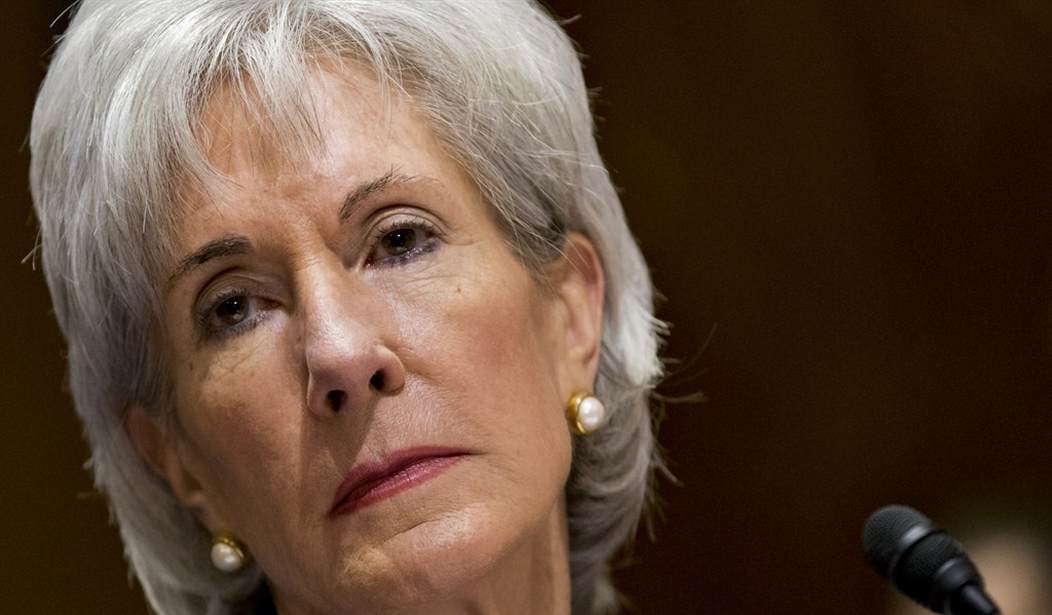You may recall when Kathleen Sebelius said this, under questioning from Texas Senator John Cornyn:
Cornyn: “Isn’t it true that there is no federal requirement for navigators to undergo a criminal background check, even though they will receive sensitive, personal information from individuals they help to sign up for the Affordable Care Act?”
Sebelius: “That is true. States could add an additional background check and other features but it is not part of the federal requirement.”
Cornyn: “So a convicted felon could be a navigator and could acquire sensitive personal information from an individual, unbeknownst to them?”
Sebelius: “That is possible.”
I give you California:
At least 43 convicted criminals are working as Obamacare navigators in California, including three individuals with records of significant financial crimes. Although some of the offenses are decades old, and although convicted criminals account for only 1 percent of the 3,729 certified enrollment counselors in the state, Californians still have good cause to be concerned about their privacy. Even a single crooked navigator could do significant harm to the public. That’s because when navigators sign consumers up for health insurance under the Affordable Care Act, they have access to lots of private information, including Social Security numbers, home addresses, and financial data — basically, everything on the wish list of identity thieves and fraudsters. Navigators also are likely to work with a population that is more vulnerable than average.
Limited statistics released by Covered California — the state’s new health-insurance exchange — showed that one navigator has repeat forgery offenses — one in 1982, then another in 1994, with a burglary in between. Another had two forgery convictions in 1988, in addition to a domestic-violence charge a decade later. Another committed welfare fraud in 1999 and had shoplifted on at least two prior occasions. Since 2000, individuals now working as navigators have committed crimes including child abuse, battery, petty theft, and evading a police officer. At least seven navigators have multiple convictions. The information released covered only certified enrollment counselors, one of the three types of navigators working in California.
Recommended
National Review notes that ex-convicts securing jobs and providing for themselves is generally an unequivocally positive development -- but given the sensitive nature of this particular line of work, shouldn't former felons be excluded from the applicant pool? According to this report, "California’s Republican lawmakers unsuccessfully requested that Covered California establish a policy forbidding anyone with a prior conviction, regardless of the date, to work as a navigator." The reporter also points out another irony in all of this:
In December, Covered California wrote me a letter explaining why it could not release the public records I had requested about its navigators’ criminal histories, offering statistics as a compromise. It cited “deliberative process privilege,” and it also claimed that releasing the records would violate the privacy of the navigators. (Odd, isn’t it?, that the criminal navigators’ privacy rights are apparently valued more than consumers’ privacy rights).
The state previously resisted attempts to ascertain this information using the following reasoning: “Disclosing the names and criminal records of individuals applying to assist in Covered California’s push to enroll vast numbers in health insurance by March 31, 2014, is likely to discourage participation in this critical program and thus harm the people of California.” In other words, if the public knew about navigators' criminal records, they might be less inclined to sign up, thus endangering "this critical program." Obamacare's critics have already seized on major data security vulnerabilities that threaten consumers' personal data on Healthcare.gov. Revelations about navigators with criminal records will only serve to deepen people's skepticism about the program. A recent Fox News poll revealed that a strong majority of Americans aren't confident that Obamacare's logistical apparatus and personnel will keep users' sensitive information private.

























Join the conversation as a VIP Member